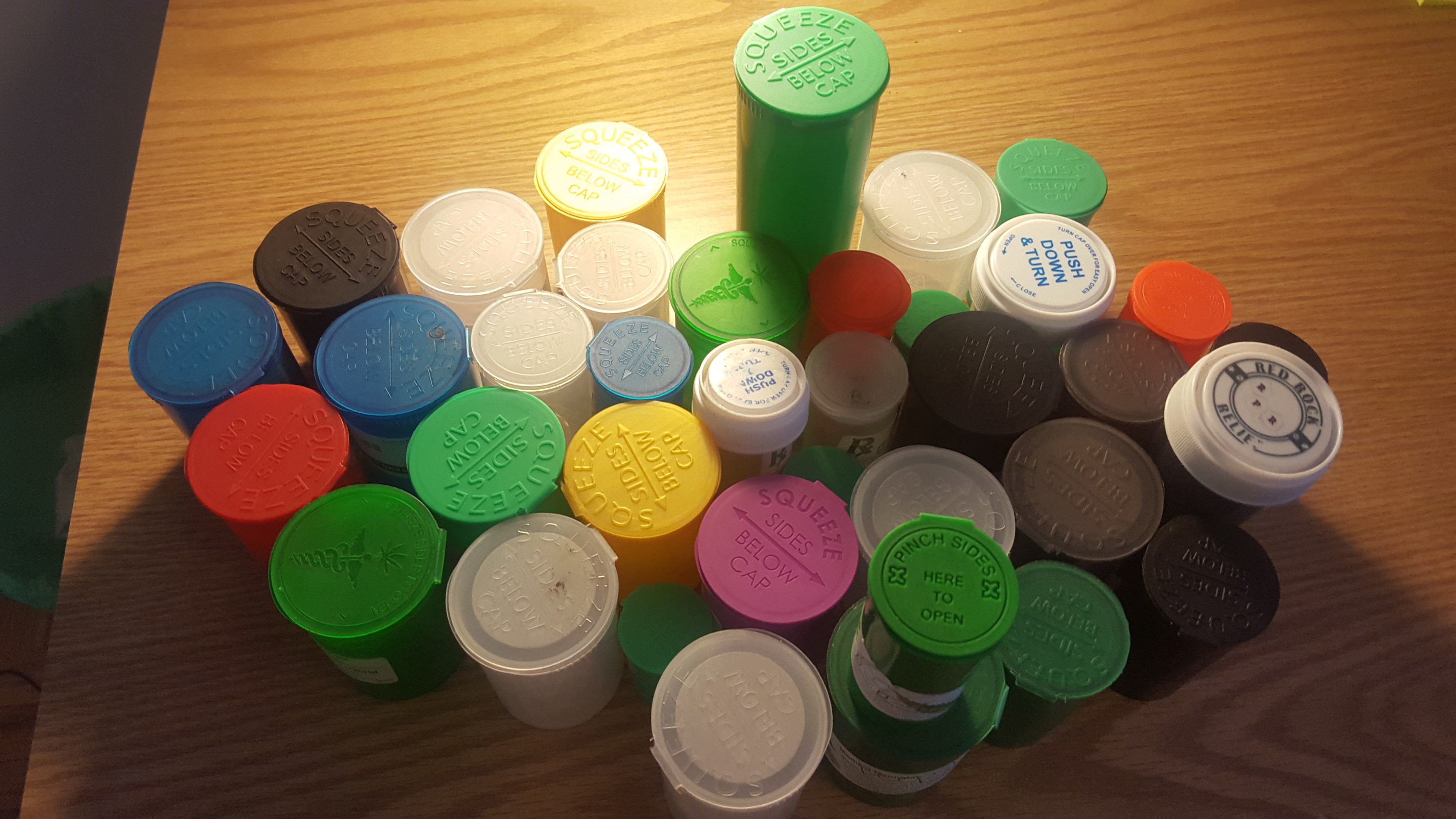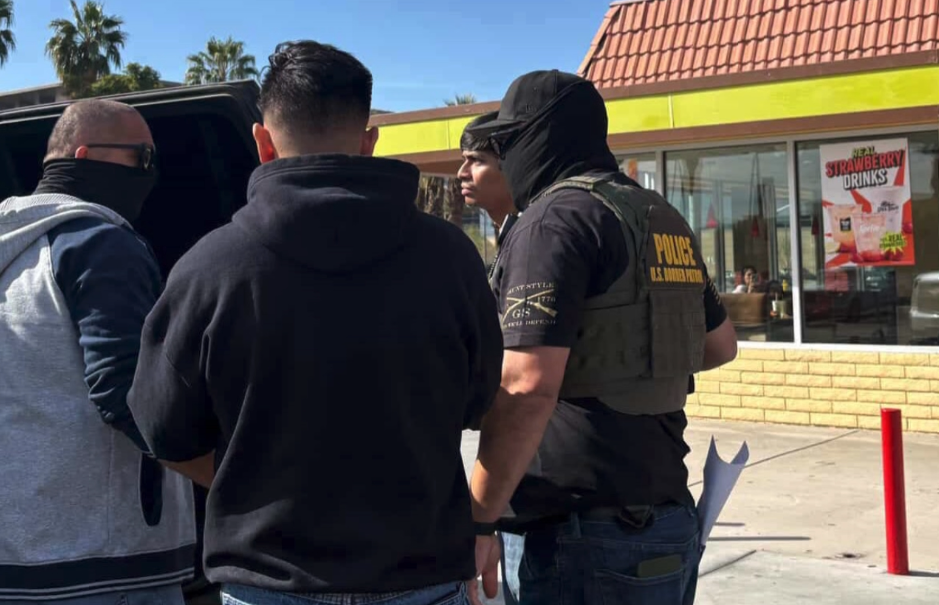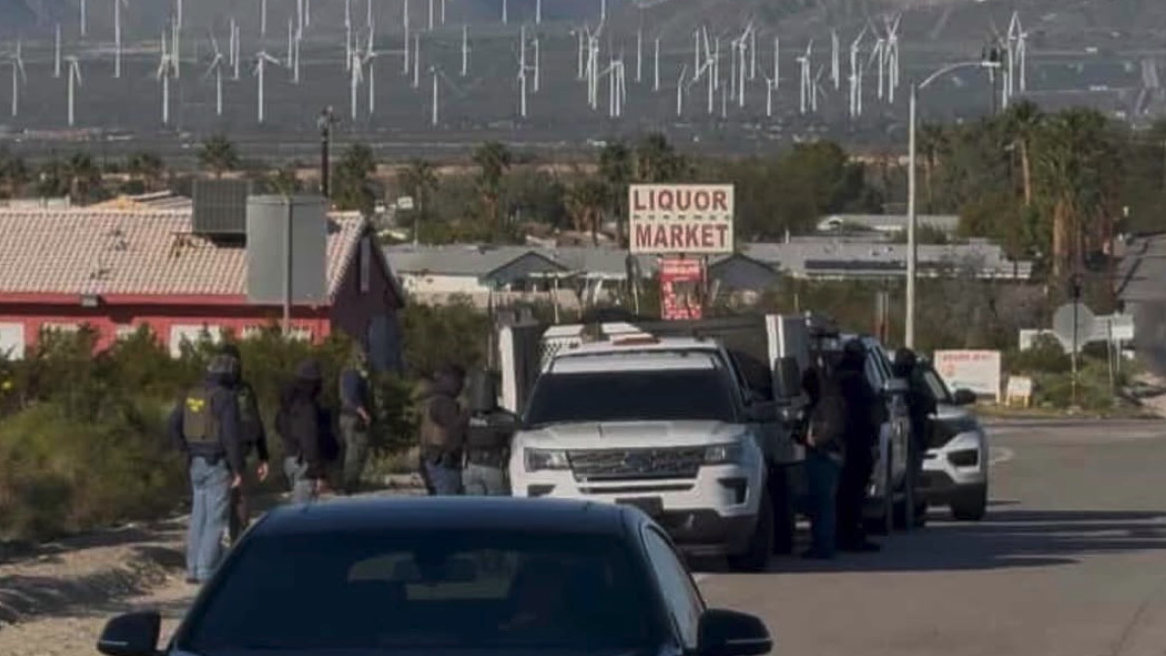[dropcap size=big]L[/dropcap]os Angeles has a weed problem.
The issue is not with the amount of dank being smoked or the number of dispensaries in the city, but rather the sheer volume of those unmistakable plastic cannabis canisters that end up on the sidewalks, in the sewers, and strewn amid plants. Typically colored a ganja green or a translucent orange – mimicking those that hold pharmacy-issued pills – these pop-top containers are a persistent presence in cities where weed is legal.
The little canisters are a continual collateral menace as weed becomes more mainstream in L.A. and there are no governing policies on how to recycle or reuse them. In the meantime, the cannabis community has come up with some ingenious ways to give these containers new life. You can fill them with quarters for parking or laundry; stock them with spices or daily vitamins; keep all your bobby pins and jewelry in one place; or, if feeling especially ambitious, use the taller containers to plant small herbs.
RELATED: Support Stories Like This & Become a Member of L.A. Taco Today!
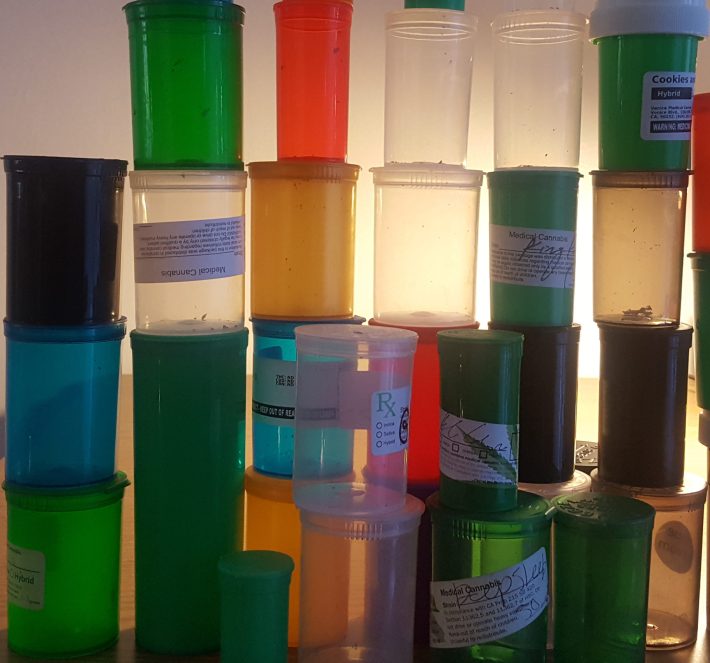
Material is only recyclable if someone wants to purchase that product and make it into something new.
[dropcap size=big]W[/dropcap]hile cannabis itself is considered organic refuse and can be treated like the leaves and grass you toss in the green bin, understanding how to reuse, and recycle the many types of packaging cannabis is sold in, is a lot more complicated.
For one, a plastic product made from multiple layers and different material types is not recyclable. This means most of those thick plastic or Mylar bags that contain cannabis candies, brownies and other edibles will end up in the landfill – no matter what color bin you put them in.
However, while the “exit bags” – which every shop in L.A. is required to issue to customers when they make a purchase – aren’t typically recyclable, they’re not single-use either. Think of these thick to-go bags as you would a reusable grocery bag. According to state regulators, these cases are completely reusable as long as they’re opened correctly and in a way in which they can be resealed.
In general, a material is only recyclable if someone wants to purchase that product and make it into something new, said Lance Klug, public information officer with CalRecycle, which oversees recycling programs throughout the state. Demand can change dramatically even neighborhood to neighborhood. “What’s recyclable in Los Angeles might not be recyclable in Sacramento,” Klug said.
In Los Angeles, Michael Lee is project manager for blue bin curbside recyclables. He told L.A. Taco that while the city used to be able to recycle all types of plastics – including grocery bags and mixed-used – waning demand from China for these types of materials has drastically reduced what L.A. is able to process and profit from recycling them.
“We used to make a lot of revenue selling these materials to our MRFs [Material Recovery Facility], now we have to pay to process them,” Lee said.
As a result, there’s very few plastic types the city can currently use.
RELATED: Weed Is Finally Legal to Pack When Flying Out of LAX, But There’s a Catch
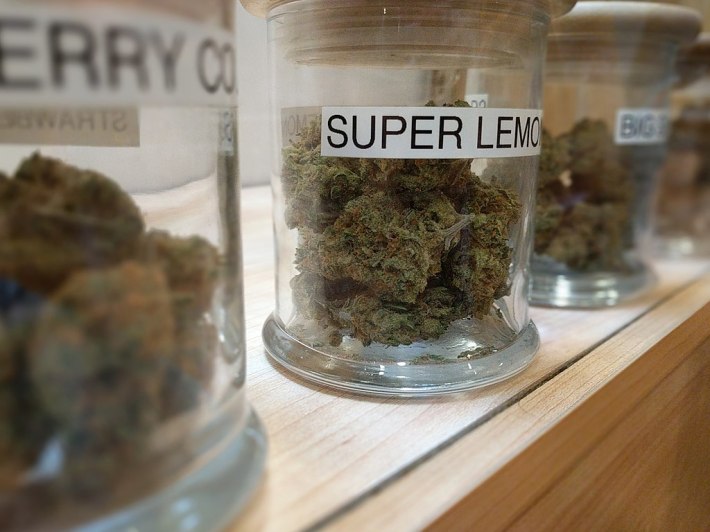
Some weed producers and dispensaries have started thinking creatively.
[dropcap size=big]T[/dropcap]he system works like this: Whenever you throw something in the blue bin, it’s sent to one of those MRF facilities and sorted. Items smaller than two inches typically fall through the cracks and don’t get recycled, and depending on overseas demand for certain plastics, items may end up in a landfill despite your best intentions.
So flip over that plastic weed canister and on the bottom – as is the case with any plastic material – you’ll find a number surrounded by the three-arrow symbol. While most of these containers may not ultimately make the recycling cut, the City of Los Angeles still urges residents to put any plastic numbered one through seven in the blue bins and let them do the rest.
Some weed producers and dispensaries have started thinking creatively, offering alternatives and incentives that encourage more environmentally sustainable behavior. In fact, as California moves further into legalization, KoreaTown Collective owner Janice Hardoon says she’s seen an increase in the number of quality brands opting to package cannabis in glass instead of the traditional plastic. Glass, as long as it’s clean and dry, is always recyclable, and can be thrown in the blue bin alongside cans, bottles and cardboard.
At The Reefinery in Van Nuys, dispensary owner Greg Meguerian established his own recycling system with customers in which, in exchange for returning a glass jar once they’re done with it, they’ll receive a 25-cent credit to the shop, he said. Prior to adult-use legalization this year, he was able to clean out the containers with ethanol and then refill them for future use.
“We were able to give a 50-cent discount because we were able to reuse them,” he said.
With increasing statewide regulations that come for California’s legal recreational weed laws, this litter-bugging can only be expected to continue – and could get worse.
RELATED: Cannabis City: Here’s a Look at the Numbers of L.A.’s Legal Weed Industry
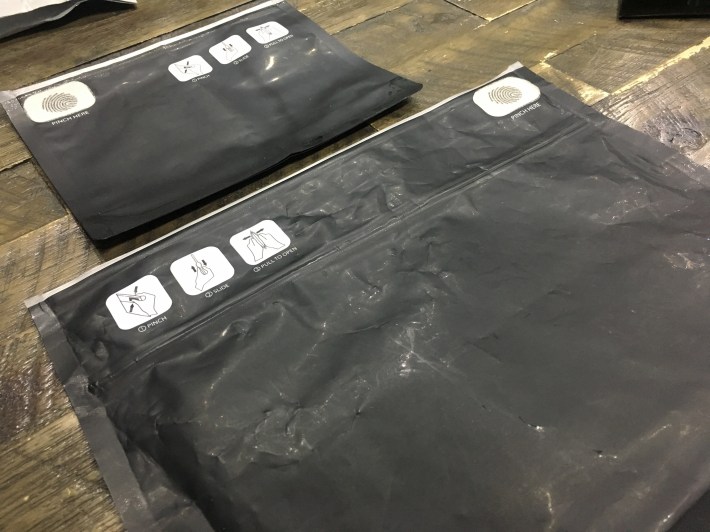
Packaging makes up about 25 percent of the waste in the state of California.
[dropcap size=big]I[/dropcap]n July of this year, California ushered in new cannabis packaging requirements that require weed products leave a dispensary in childproof packaging and opaque “exit bags.” These heavy duty satchels, often adorned with store branding, are typically made of some combination of heavyweight plastic and a complicated zipper top.
“Packaging waste itself is a huge problem in California – [for] cannabis or otherwise,” said Klug with CalRecycle. Packaging makes up about 25 percent of the waste in the state of California, he told L.A. Taco.
Now, because of changing packaging laws and a priority to stay compliant, shop owners like Meguerian are still figuring out their green options. He is now looking into whether he can recycle the childproof caps now required by state law. While he can’t control what people do with their trash when they leave the shop, Meguerian said he works hard to keep his own neighborhood clean from cannabis litter.
“Every morning we police around our building,” he said. “We try to keep the good neighbor policy.”
As for vape pens, while they or their batteries can’t typically be recycled in the curbside bin, opting for a non-disposable pen model can help cut down on waste. There are also an increasing number of companies making pens and accessories from sustainable materials. Like Dosist, an L.A.-based brand that uses recyclable materials for their pen’s case, shell and electronic parts, and also offers a $5-discount on a new pen when you return the used one to a dispensary for recycling.
CalRecycle’s Klug reminds consumers that, as always: “The most environmentally friendly thing we can do is generate less waste in the first place.”
READ MORE IN CANNABIS CITY:
Get Ready to Say Good-Bye to Open Jars and Smelling Flower at Weed Shops
A Look at the Numbers of L.A.'s Legal Weed Industry, Six Months In and Running Late
No One Can Technically Buy 'Legal Weed' in L.A. Today, January 1
